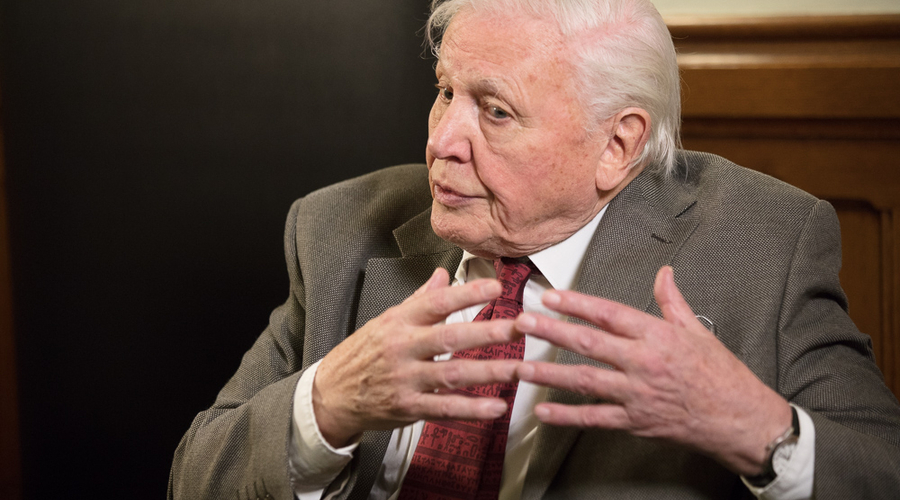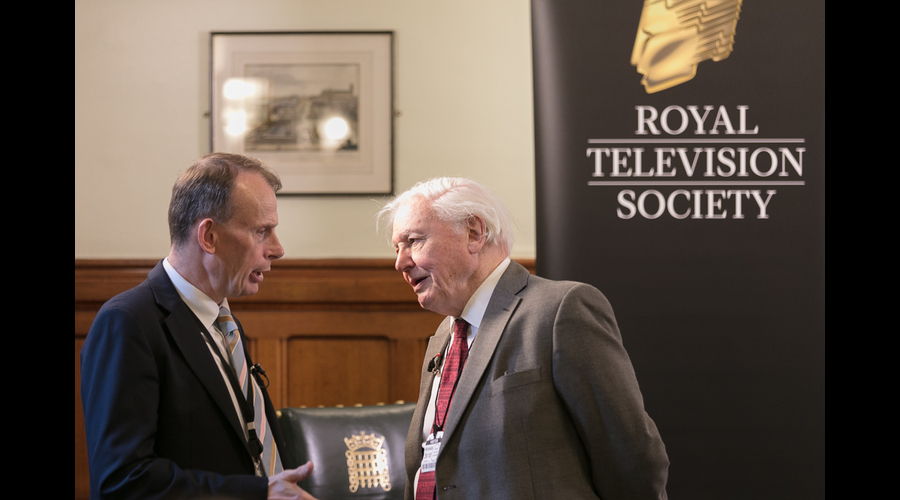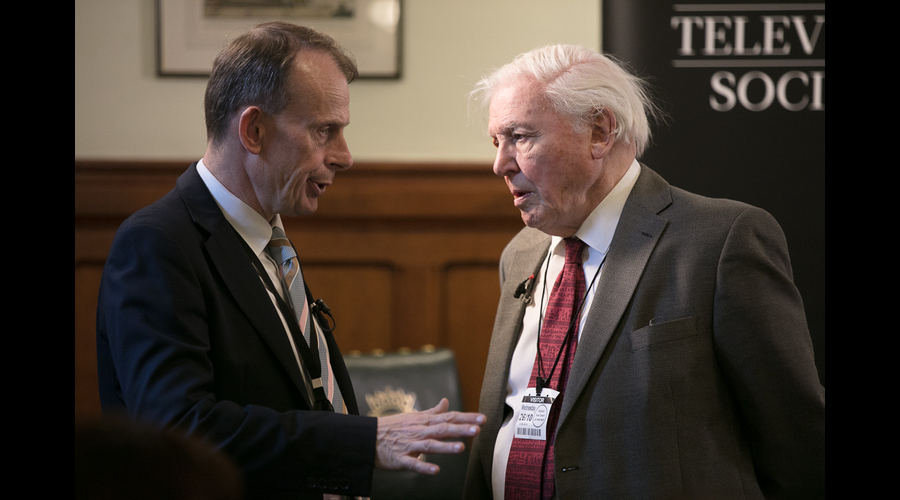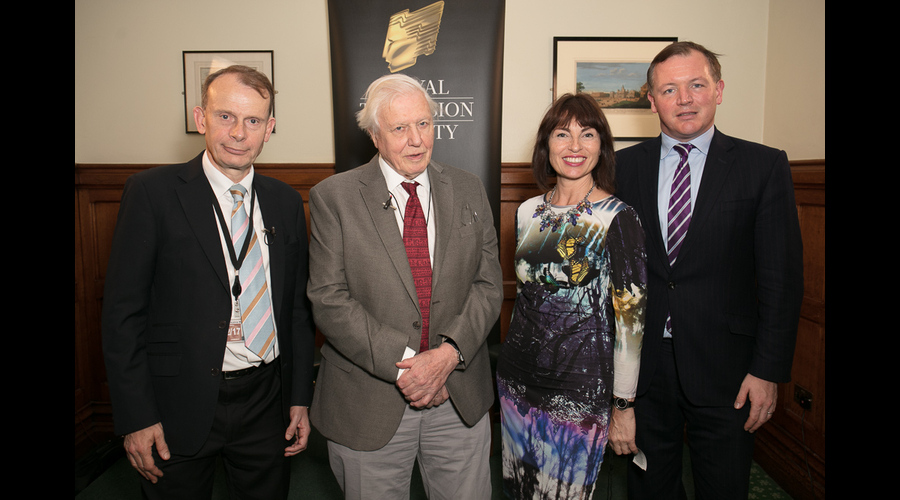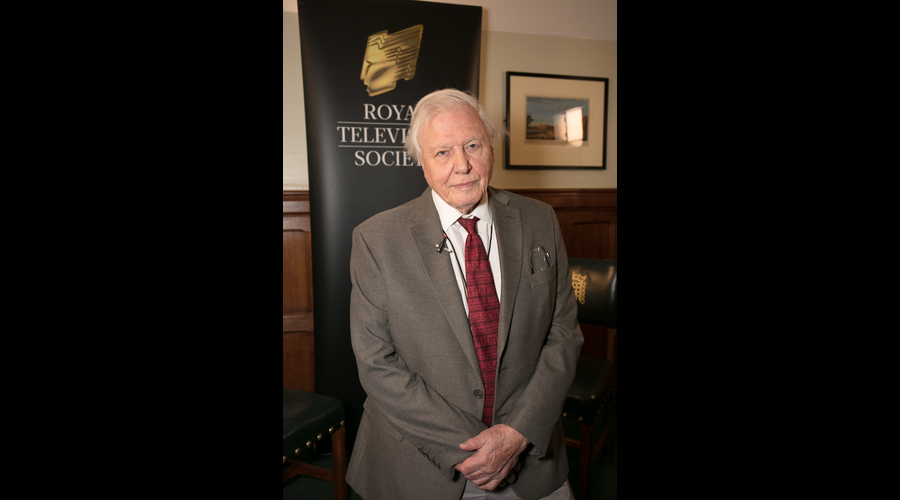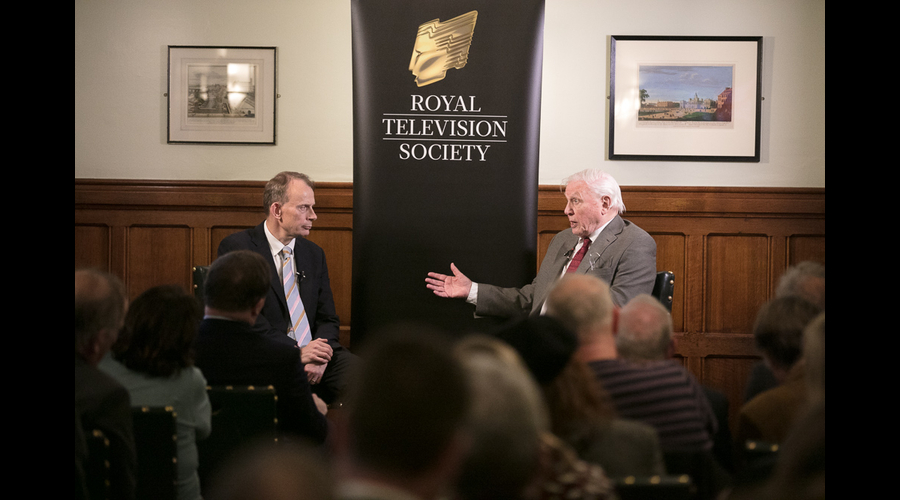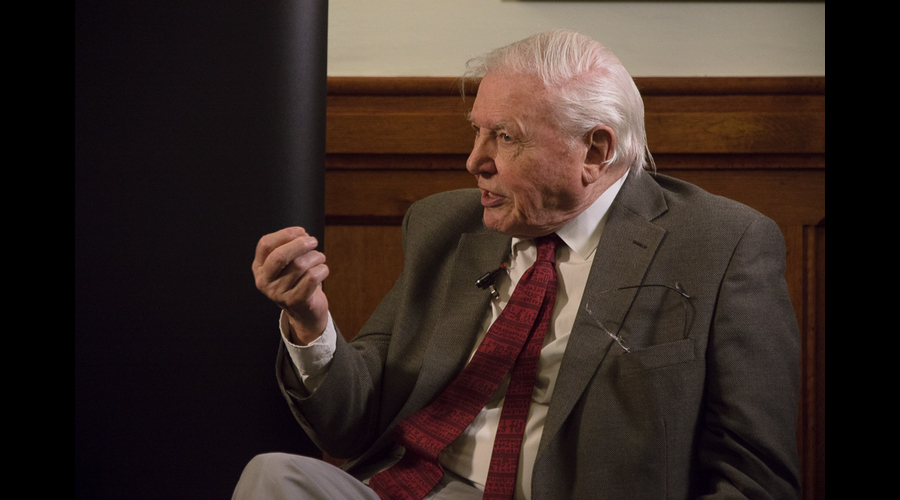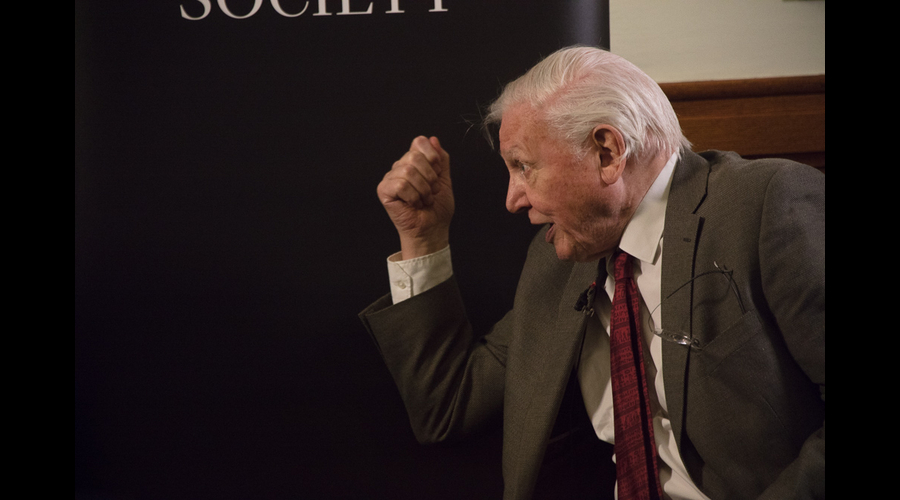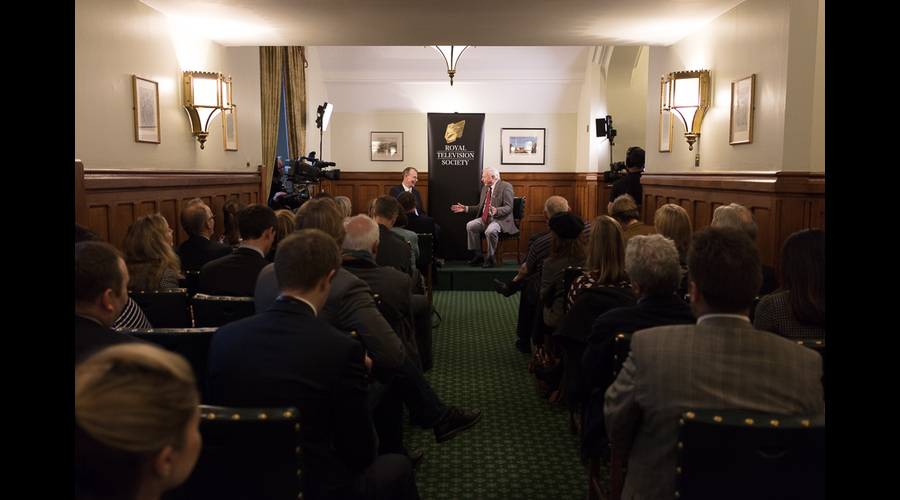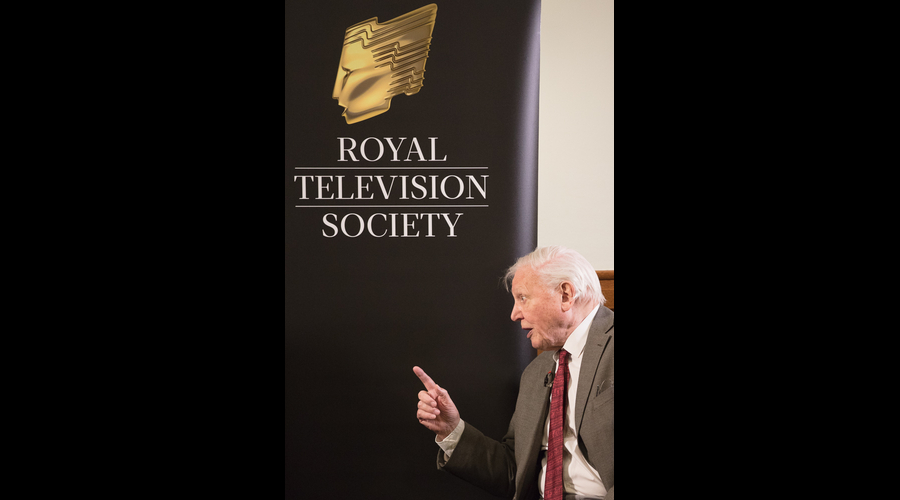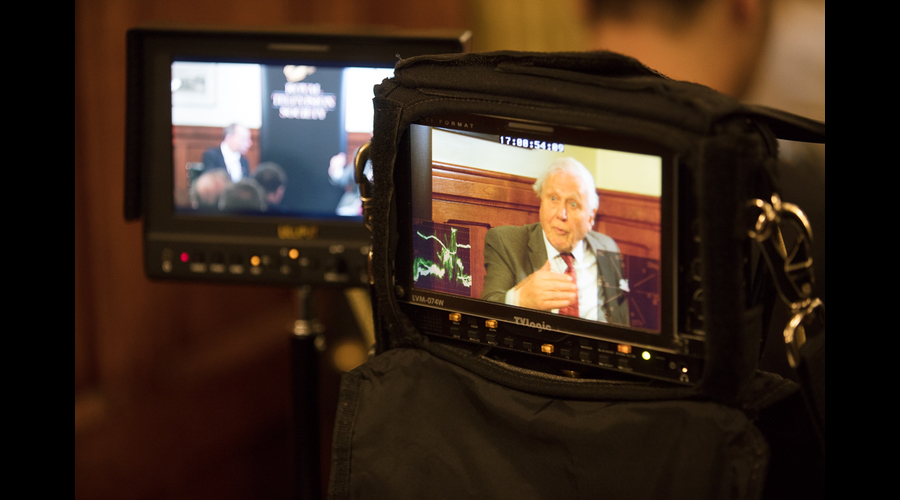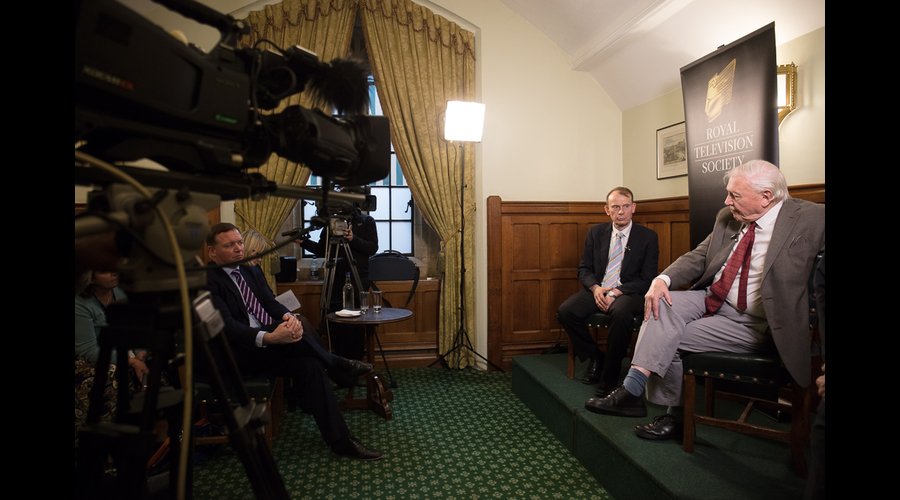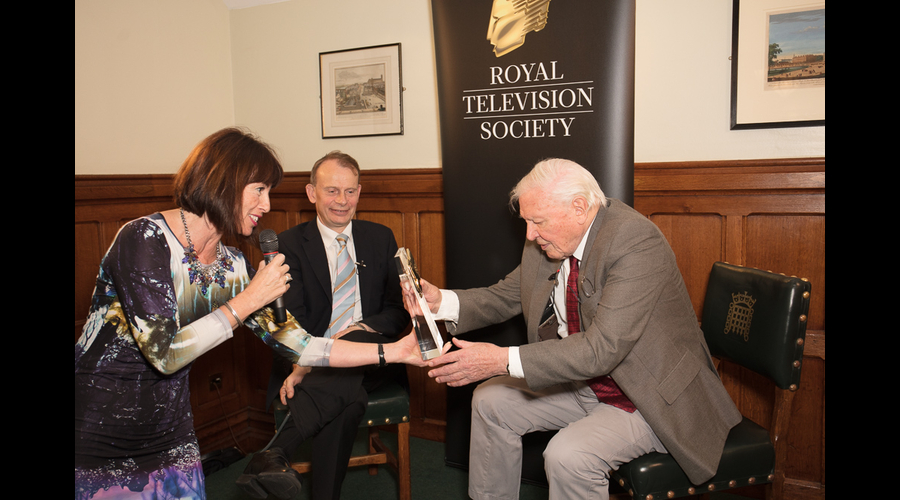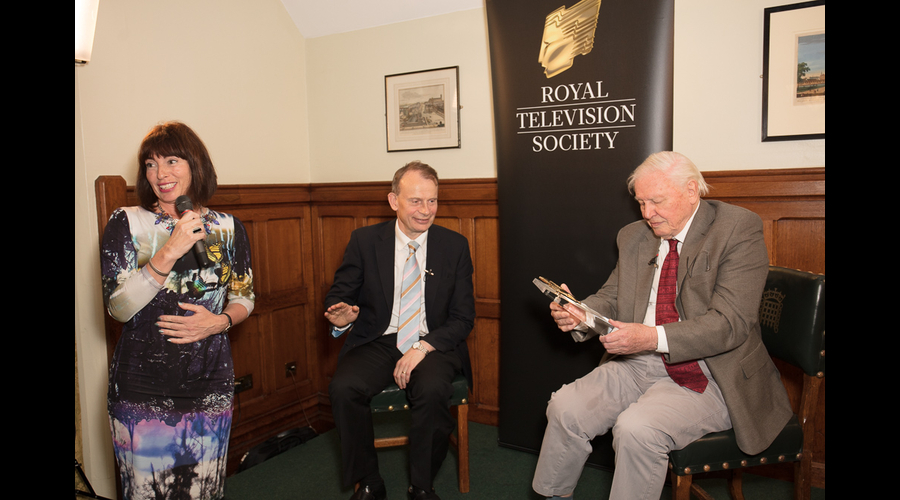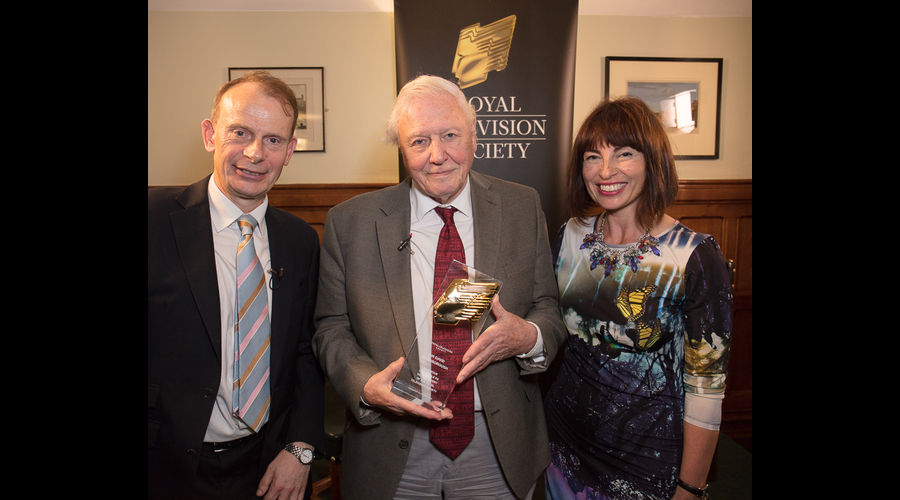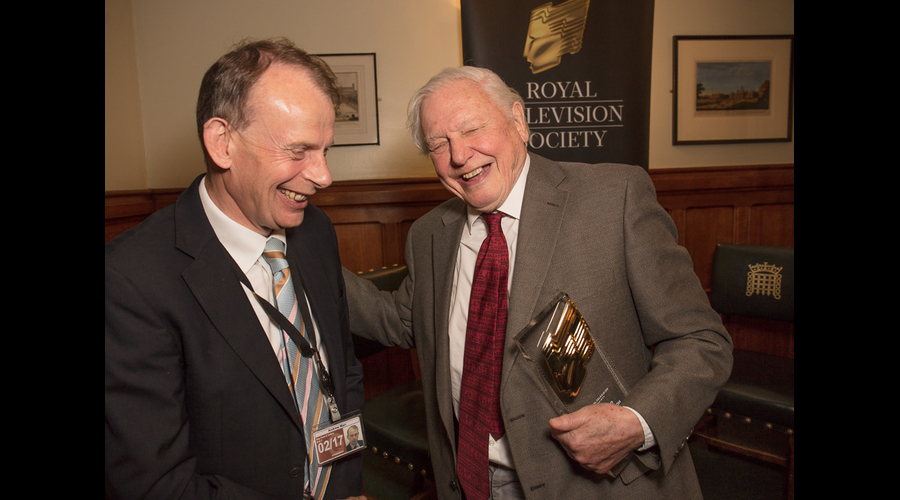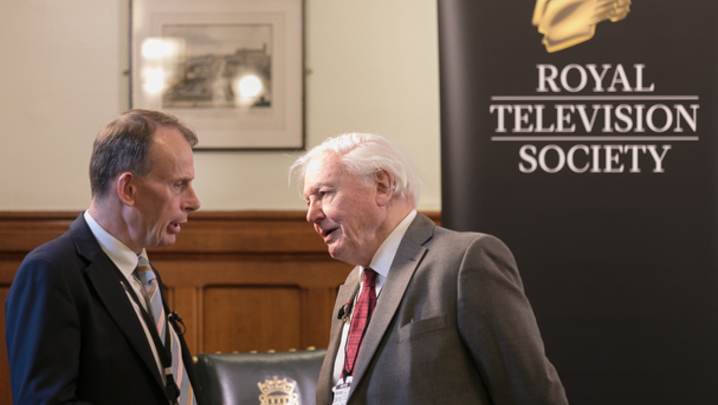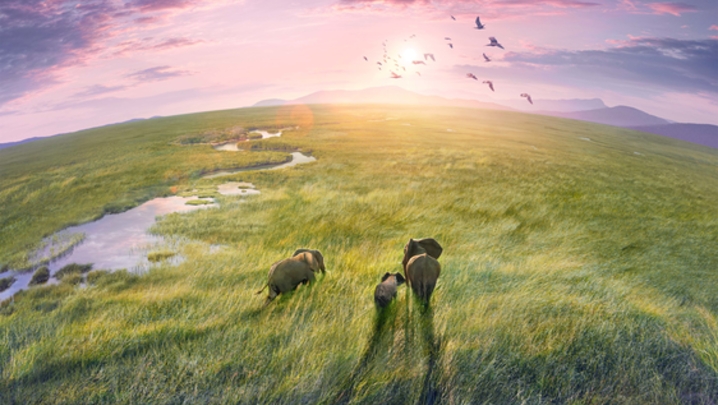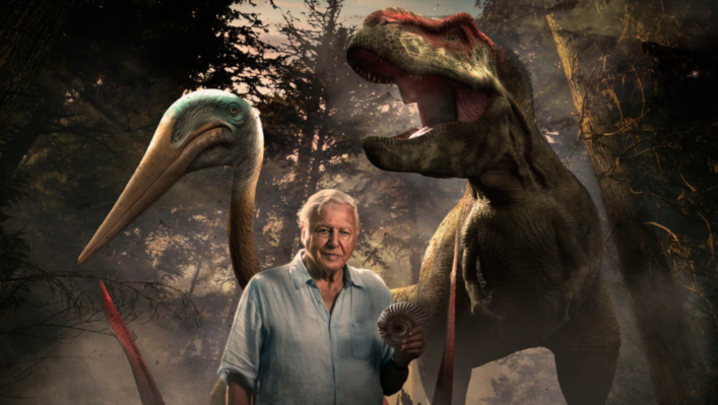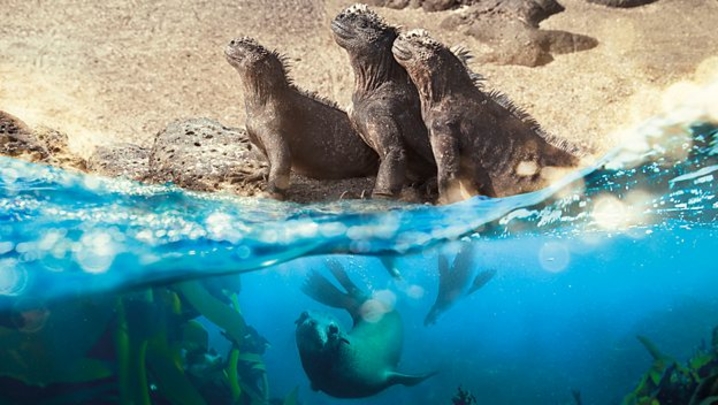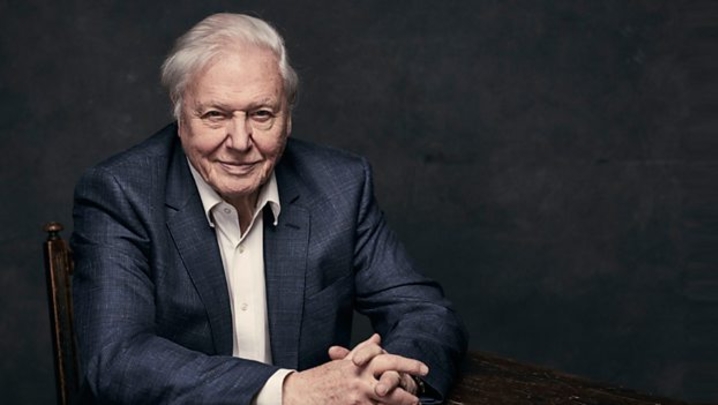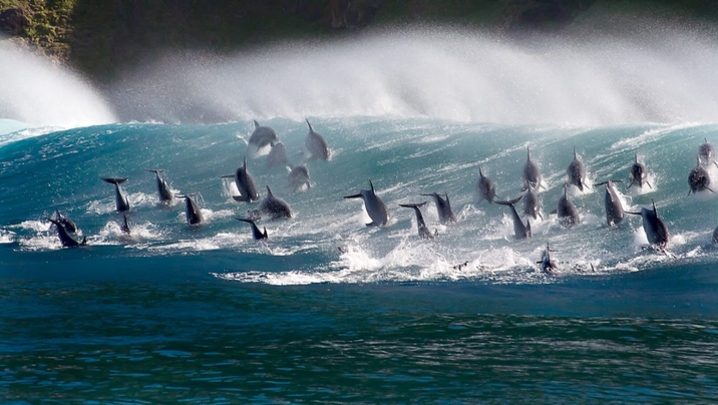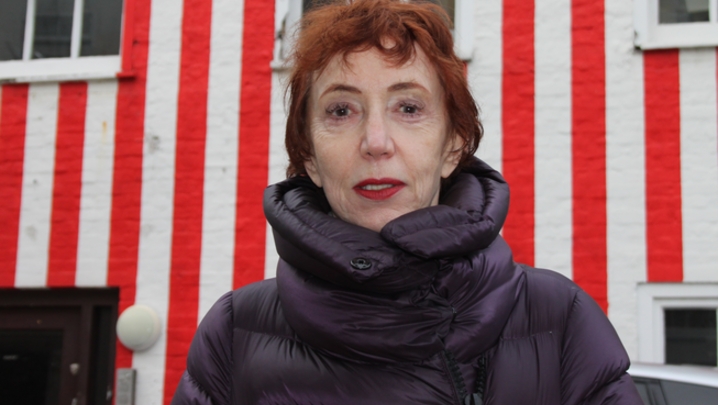Sir David Attenborough wants the BBC to invest more in long-form documentaries covering a broader range of subjects and ease off on lifestyle shows and drama.
Speaking to the RTS All Party Parliamentary Group in the House of Commons the veteran natural history broadcaster said that today’s BBC commissioners were reluctant to back lengthy documentaries dealing with serious topics.
“One of the things which BBC Two did very well was to make serious programmes on serious subjects – 13 part series. That requires three years. There’s a great reluctance elsewhere to do those sorts of programmes…
“Today there is a tendency to do shorter series” He added to audience laughter: “’Today we present a new two-part series.’”
As controller of the then fledgling network, BBC Two, in the 1960s Sir David famously commissioned the 13-part landmark documentary, Civilisation, presented by Sir Kenneth Clark. He also greenlit Monty Python’s Flying Circus and introduced snooker to British TV audiences.
Sir David, who was interviewed by BBC journalist Andrew Marr, said he would also like to see more shows tackling “serious music” shown on BBC Television.
"The BBC has to be there and has to do things that others don't tackle,” stressed Sir David, who was presented with an RTS trophy in recognition of his role as a Vice President of the Society.
He hailed the BBC licence fee as “the biggest possible bargain in Britain.”
Sir David continued: “People I talk to, and I hope I'm not too cliquish, but a lot of the people are delighted to pay for what they get for networks, radio networks, and three or four television networks.
He added: "I think personally that we are doing too many actuality shows and, important though they are, there are other things like cooking, and so on, and gardening, which are very good and certainly should be on the network but we are doing rather too much of.
"We are also doing a lot of drama. And personally as an ex-channel two controller I think we are doing too much.
“Not because there's anything wrong with them in themselves, they are all absolutely excellent in their own way, but we are nudging out, and we are not exploring new things and new subjects.”
His view was echoed by Marr who called on the BBC to broadcast more science programmes. He said: "We are living through an age of extraordinary scientific renaissance. This is the most exciting time to be alive when it comes to science, when it comes to material science, microbial science, deep science and planets. We do some of it in my view, but not nearly enough.”
Sir David highlighted the importance of the BBC as a benchmark for quality and its role as a broadcast beacon in the digital age. “The BBC can set standards, of veracity, of responsibility. Taste is a very difficult thing…but the BBC has to be there and do things that others don’t tackle because they don’t think it’s worth it commercially for them.
“If you look back at popular programmes you’ll see that the BBC pioneered them, again and again and again.”
Asked to name five of his all-time favourite programmes, his choice was, perhaps surprising. "Porridge. It is absolutely top of almost anything," he replied.
"It seems to me a drama, a comedy, a deep insight into human personalities, causes you to think, magnificently played, perfectly cast. I don't know a better series on television."
He added: "I'll let you have the other four."
Sir David Attenborough was in conversation with Andrew Marr, an RTS APPG event held at the House of Commons on October 26th. The producer was Sue Robertson. A full report of the event will be published in the November edition of Television magazine.

